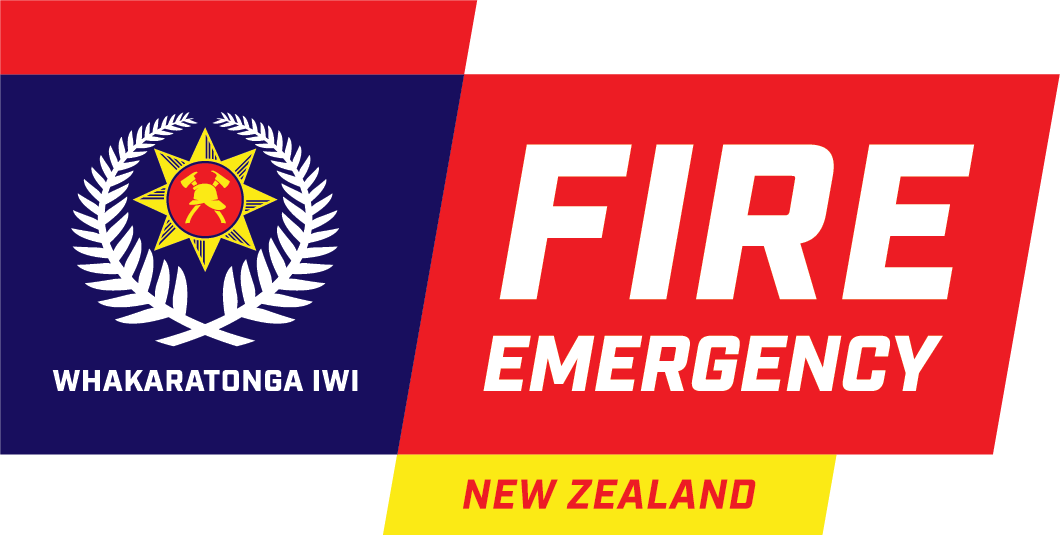Rock solid commitment to the safety, health and well-being of our firefighters
Today Fire and Emergency New Zealand, and unions and associations representing firefighters, committed to working together on safety, health and wellbeing matters.
During a ceremony at Wellington City Station, the Chairman and Chief Executive of Fire and Emergency NZ signed a new Safety, Health and Wellbeing (SHW) policy commitment. They and firefighters’ representatives then all signed an endorsement statement committing to working together in support of the policy.
“Nothing is more important than our people,” said Board Chair, Paul Swain.
“That is the first line of our Safety, Health and Wellbeing policy commitment and I am so pleased that the unions and associations who represent our people agree.”
“I can’t think of a better way to begin the first week of our new organisation than acknowledging our shared commitment to ensure our people go home safe and well,” he said.
On the first day in his role, Fire and Emergency New Zealand Chief Executive, Rhys Jones, says he is particularly encouraged by the support behind this commitment and how important this is for the new organisation he is now heading.
“Our firefighters have to cope with some of the worst situations you can find yourself in, including managing fires, vehicle crashes, medical emergencies, natural disasters and rescues,” he said.
“Situations that include the risk of injuring themselves when helping others, but which also impact on their overall wellbeing after the event.”
“This commitment is not only what we must do for our people, but also reflects their level of commitment to helping our communities around the entire country every day.”
The new SHW policy has been developed using a working group that included representatives from the five unions and associations that represent people right across the new organisation.
President of the NZ Professional Firefighters Union, Peter Nicolle said he was particularly pleased that the new policy was developed by those who deal with high risk situations almost every day.
“Everyone on the working group who helped put this policy together was able to use their experience, both operational and non-operational, to come up with an approach we, and our members, strongly endorse,” he said.
This sentiment is also supported by the President of the Fire and Rescue Commanders’ Association, Roy Breeze.
“We were particularly pleased with the focus on an overall health and wellbeing approach, not just what is needed when a firefighter gets injured,” he said.
United Fire Brigades’ Association Chair Rick Braddock says in recent years there has been a shift from traditional fire services to more rescue work by firefighters at motor vehicle accidents and many more medical calls as first response.
“The impact of these changes on our frontline people is gathering momentum and there needs to be a continued focus on safety and wellbeing activities.
“The UFBA is working together with Fire and Emergency New Zealand on developing new leadership initiatives to support firefighters in accessing psychological support.”
Keith McFadyen, the Public Services Association organiser for Fire and Emergency New Zealand, said their organisation is pleased to have been part of this work.
“The Transition team and Combined unions have worked tirelessly to ensure that the statutory requirements and organisational design have been worked through to ensure that services can be delivered on the 1st July.
“The PSA would like to thank the Board, management and the Transition team for their genuine engagement and acknowledgement that working with the union can be a productive and successful way to design systems and processes that will deliver from day one of Fire and Emergency New Zealand.
This is a positive continuation of the building of a constructive working relationship and we look forward to assisting and developing equitable conditions of employment and systems over the next few years. “
“This policy commitment and endorsement is the result of a lot of hard work and collaboration,” said Kevin Ihaka, National Committee Chair of the Forest and Rural Fire Association of New Zealand.
“It has been great to be involved in the design of this work, rather than being just presented with something developed by others.”
“As we state in our commitment, we are making safety, health and wellbeing the first operating principle that guides decisions, and this work ensures it will stay that way.”


